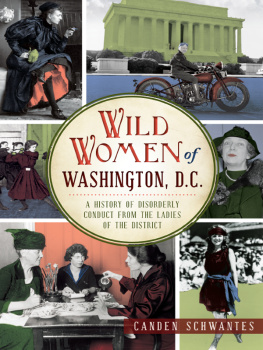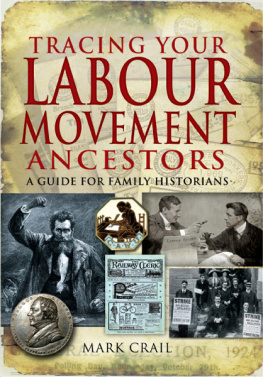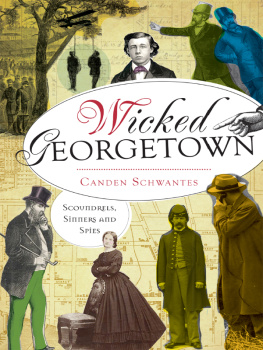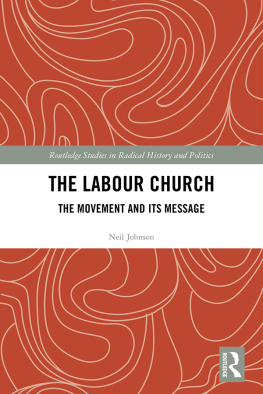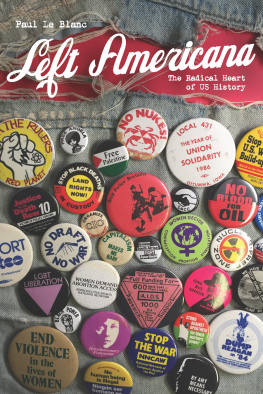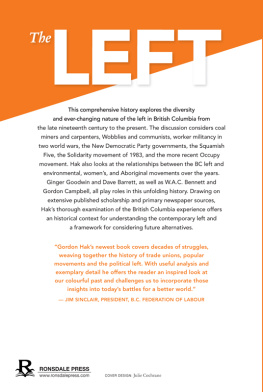The Emil and Kathleen Sick Lecture-Book Series in Western History and Biography
The Emil and Kathleen Sick Lecture-Book Series in Western History and Biography
The Great Columbia Plain: A Historical Geography, 18051910, by Donald W. Meinig
Mills and Markets: A History of the Pacific Coast Lumber Industry to 1900, by Thomas R. Cox
Radical Heritage: Labor, Socialism, and Reform in Washington and British Columbia, 1885-1917, by Carlos A. Schwantes
Radical Heritage
Labor, Socialism, and Reform in Washington and British Columbia, 1885-1917
Carlos A. Schwantes

Copyright 1979 by the University of Washington Press
Printed in the United States of America
All rights reserved. No part of this publication may be reproduced or transmitted in any form or by any means, electronic or mechanical, including photocopy, recording, or any information storage or retrieval system, without permission in writing from the publisher.
Library of Congress Cataloging in Publication Data
Schwantes, Carlos A1945
Radical heritage.
(The Emil and Kathleen Sick lecture-book series in western history and biography; 3)
Bibliography: p.
Includes index.
1. Trade-unionsWashington (State)Political activityHistory. 2. Trade-unionsBritish ColumbiaPolitical activityHistory. 3. Socialism in Washington (State)History. 4. Socialism in British ColumbiaHistory. I. Title. II. Series.
HD8079.W3S38309.1711037821757
ISBN 0-295-95653-4
To Mary,
my beloved partner
The Emil and Kathleen Sick
Lecture-Book Series
in Western History and Biography
Under the provisions of a Fund established by the children of Mr. and Mrs. Emil Sick, whose deep interest in the history and culture of the American West was inspired by their own experience in the region, distinguished scholars are brought to the University of Washington to deliver public lectures based on original research in the fields of Western history and biography. The terms of the gift also provide for the publication by the University of Washington Press of the books resulting from the research upon which the lectures are based. This book is the third volume in the series.
Preface
At no time is the visitor to the Pacific Northwest more likely to deceive himself than upon crossing the Canadian-American border at Blaine, Washington. In summer he might pause there to enjoy the international gardens that form the highway median. Standing amid the flowers he would probably notice the relative ease with which the stream of traffic crossed from one country to the other. He might also admire the massive white Peace Arch that marks the boundary with the simple inscription: Children of a Common Mother. If, however, those words produce in the minds eye a picture of Britannias offspring as fraternal twins, the process of self-deception has begun. The observer merely compounds the error if he applies that image to Washington and British Columbia. That is easy enough to do since, together with Oregon, they have long evoked the notion of a misty Northwest commonwealth of mountain, forest, and sea, and in the historical sense they were nurtured in the womb of the Old Oregon Country. The process of self-deception becomes complete when the visitor concludes that for the most part the border is a meaningless formality.
How ironic that while the uninitiated frequently believe in an almost insignificant line of separation, many historians are tempted to picture the 49th parallel as a kind of partition across which the researcher need not glance after the 1850s and 1860s. As this study hopes to demonstrate, however, Washington and British Columbia constitute a unique historical laboratory in which to reexamine the response to industrialism in the late nineteenth and early twentieth centuries.
Between 1885 and 1917 both areas underwent a rapid, often turbulent transformation from frontier to urban, industrialized societies. The process was by no means completed when World War I began, but during those thirty-odd years we can see how geographical neighbors looked over one anothers shoulders as they sought to discover and apply effective remedies for the common ills plaguing the worlds jerry-built industrial civilization.
As might be expected, disparate political, economic, and social systems sometimes caused Washingtonians and British Columbians to apply the same nostrums in markedly different ways. This will become clearer as we examine anew the familiar remedies offered by the trade unionism of Samuel Gompers and the socialism of Eugene Debs. In the process, new understanding may be gained as to why the general-welfare state developed as it did in the United States, or, more specifically, why organized labor in America failed to develop a viable socialist-labor-reform party comparable to the Labour party in Great Britain or the New Democratic party in Canada.
Organized labor played a more prominent role in the evolution of society in Washington and British Columbia than perhaps in any other frontier region in North America. To be sure, the percentage of nonagricultural workers unionized in those two areas has frequently been higher than in any other part of the United States or Canada. Largely because of the interrelated nature of labor, socialism, and reform in Washington and British Columbia, both areas have long been pictured by observers as being advanced, even radical, in terms of social legislation.
Both Washington and British Columbia have also been described as puzzling and somehow different from the other states and provinces of the nations of which they are a part. Actually, the puzzling aspect is not the misleading similarity but rather the separateness that marks the political environments of the two; the governor of Washington and the premier of British Columbia did not exchange official visits to discuss matters of common concern until 1973. Governor Daniel Evans of Washington, the first man to serve three consecutive terms in that office, a straight arrow engineer Both men, however, were recognized as innovators within the framework of two very different political traditions.
When the New Democratic party captured thirty-eight of the fifty-five seats in British Columbias legislative assembly in the election of August 1972, Dave Barrett, at the age of forty-five, became the premier of the first of Canadas wealthier provinces to choose socialism. Educated in universities in Seattle and St. Louis and having spent at least one summer working in the pea harvest of eastern Washington, Barrett was no doubt mindful of the way his minority party had been able to use the parliamentary system to gain power. The Americans, he observed, have a tremendous history of radical movements. But the problem is they dont have direct access to power. Canadians do.
In any comparative study of labor in politics, access to power is a key element, but not the only element. In searching for that elusive quality known as the American character, the historian David Potter at one time believed that he had discovered the essential ingredient in the unparalleled American abundance. Later, after contemplating the comparative aspects of the American and Canadian experiences, he was forced to temper his environmental view by adding a plea for consideration of the historical and cultural dimensions of the problem. Indeed, the contrast between the demise of the socialist movement in Washington and its continuing viability in British Columbia cannot be fully explained without reference to historical and cultural influences.
Next page

